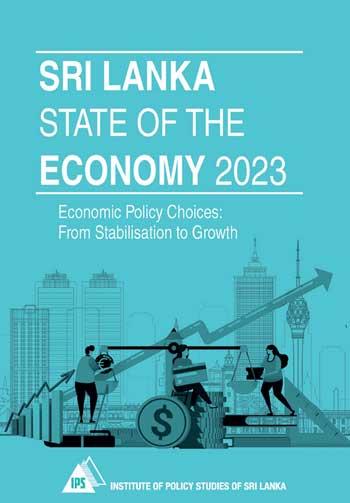Reply To:
Name - Reply Comment
 Colombo-based economic think tank, the Institute of Policy Studies (IPS), has issued a cautionary note in its latest publication, suggesting that the upcoming elections next year could potentially disrupt the necessary reforms required for the country to achieve a sustainable economic recovery.
Colombo-based economic think tank, the Institute of Policy Studies (IPS), has issued a cautionary note in its latest publication, suggesting that the upcoming elections next year could potentially disrupt the necessary reforms required for the country to achieve a sustainable economic recovery.
As Sri Lanka faces economic difficulties, with presidential elections approaching in 2024, there may be resistance to austerity and reform measures driven by traditional politics to secure votes, IPS said in the latest edition of the ‘State of The Economy 2023’ report themed ‘Economic Policy Choices: From Stabilisation to Growth’.
Regardless of the election result, it stressed that the country will need to maintain the fiscal, monetary, and exchange rate policies outlined in the IMF programme due to its delicate economic condition.
What’s uncertain is whether complementary reforms aimed at improving economic efficiency and productivity will be postponed or abandoned due to political pressures, the think tank said.
“What remains uncertain is the fate of complementary reforms aimed at enhancing economic efficiency and productivity, which might be delayed or abandoned due to political compulsions,” IPS noted.
“The more contentious reforms may slow down or stall altogether between now and the 2024 elections, to be addressed afterward, depending on electoral outcomes.
These possibilities introduce significant uncertainty at a time when economic confidence has already been severely undermined. The solution and best hopes are to build cross-party consensus on areas that do need fixing,” it added.
Meanwhile, the report outlined that Sri Lanka’s journey from economic turmoil to recovery is fraught with challenges, but there is hope as it also offers opportunities for meaningful reform.
While macro-stabilisation measures are laying the foundation, the economic think tank stressed that the path to recovery must prioritise quality GDP growth that creates high-quality jobs. Achieving this requires addressing structural issues, strengthening social safety nets, and fostering cross-party consensus.
“As Sri Lanka navigates its economic challenges, making the right policy choices, coupled with accountable institutions, will be key to transforming its setback into a sustainable success,” IPS said.
To achieve sustainable economic growth, Sri Lanka must not only stabilise its economy but also address long-standing structural problems, it stressed.